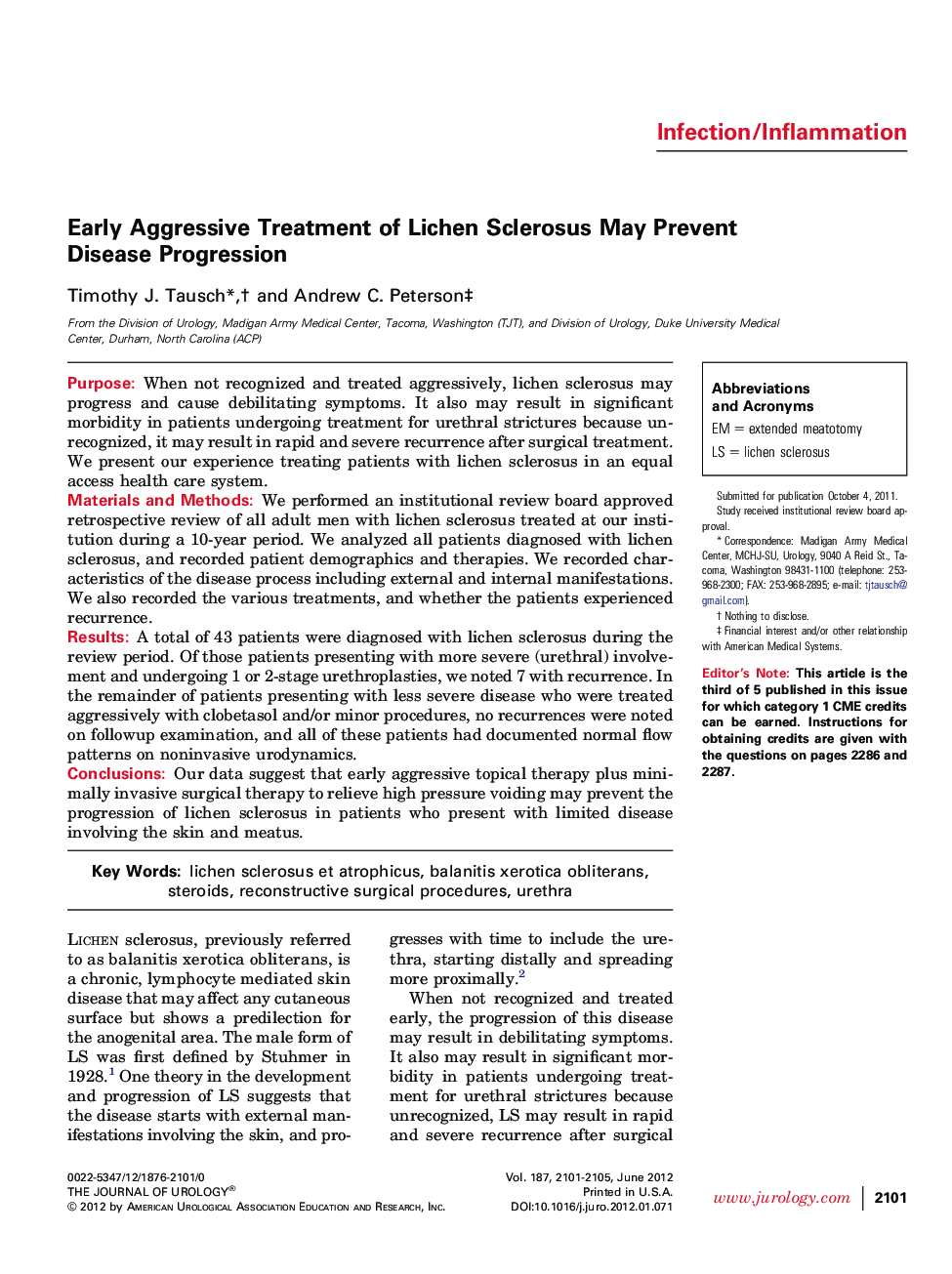| Article ID | Journal | Published Year | Pages | File Type |
|---|---|---|---|---|
| 3867784 | The Journal of Urology | 2012 | 5 Pages |
PurposeWhen not recognized and treated aggressively, lichen sclerosus may progress and cause debilitating symptoms. It also may result in significant morbidity in patients undergoing treatment for urethral strictures because unrecognized, it may result in rapid and severe recurrence after surgical treatment. We present our experience treating patients with lichen sclerosus in an equal access health care system.Materials and MethodsWe performed an institutional review board approved retrospective review of all adult men with lichen sclerosus treated at our institution during a 10-year period. We analyzed all patients diagnosed with lichen sclerosus, and recorded patient demographics and therapies. We recorded characteristics of the disease process including external and internal manifestations. We also recorded the various treatments, and whether the patients experienced recurrence.ResultsA total of 43 patients were diagnosed with lichen sclerosus during the review period. Of those patients presenting with more severe (urethral) involvement and undergoing 1 or 2-stage urethroplasties, we noted 7 with recurrence. In the remainder of patients presenting with less severe disease who were treated aggressively with clobetasol and/or minor procedures, no recurrences were noted on followup examination, and all of these patients had documented normal flow patterns on noninvasive urodynamics.ConclusionsOur data suggest that early aggressive topical therapy plus minimally invasive surgical therapy to relieve high pressure voiding may prevent the progression of lichen sclerosus in patients who present with limited disease involving the skin and meatus.
